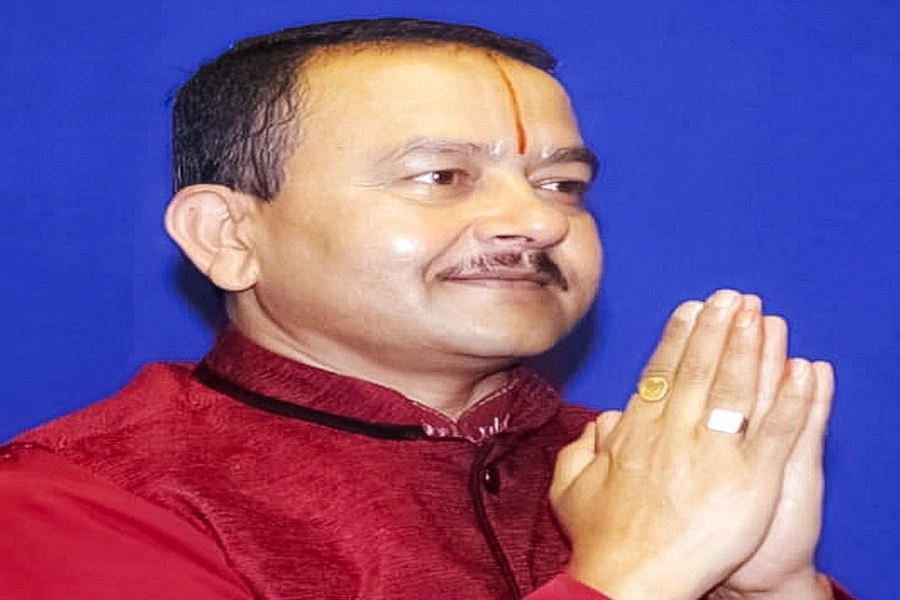KATHMANDU, Aug 23: At a time when the people have been demanding serious reforms in the judiciary, a recently-formed committee to look into the judicial irregularities has raised some hope.
The formation of the committee has increased the hope of reforms in the judiciary which has been facing corruption, irregularities and political interference for the last many years.
Noted legal practitioners have also questioned the legitimacy of the formation of the committee and also expressed doubt over the enforcement of the report to be submitted by the committee under the chairmanship of Supreme Court Justice Harikrishna Karki.
Chief Justice Cholendra SJB Rana formed the committee a few days ago in response to demands for reforms in the judiciary. The committee has been entrusted to find out the irregularities, corruption and the role of brokers as its terms of reference.
Supreme Court Justice Prakashman Singh Raut; Member of the Judicial Council Laxmi Bahadur Nirala; Registrar of the Supreme Court; Deputy Attorney General to be assigned by the Attorney General; General Secretary of the Nepal Bar Association, Leelamani Paudel; Secretary of the Supreme Court Bar Association, Subhan Raj Acharya have been chosen as the member of the committee while Supreme Court's Chief of Administration Division has been assigned as the member secretary of the committee.
CJ Rana has eroded public trust in judiciary: Former CJs

The committee is supposed to complete its task within three months from the date of commencement of its duty.
"The Chief justice cannot depute any justice for any work other than judicial task without the approval of the Judicial Council," senior advocate Shambhu Thapa argued. "This committee lacks a legal base."
He also questioned the legitimacy of the committee - whether it was formed under the Commission of Inquiry Act, 1969 or Supreme Court Act, 1992 because no legal provision was cited while forming the committee. "The CJ needs to show the provision of any Act while forming such a committee to justify his decision."
A committee formed under senior advocate Hari Prasad Uprety has been seriously demanding reforms in the judiciary. The committee had recently submitted its demand to the Nepal Bar Association and the latter also submitted its 17-point demand to Chief Justice Rana demanding reforms in the third branch of the state under the reform campaign. Senior advocates Thapa and Harihar Dahal have been fully assisting the reform campaign.
"We will raise such issues before the committee led by Karki and will ask the position of the reports prepared in the past by various committees," Thapa said, adding, "We will ask the full implementation of the NBA demand as well."
Some reports were prepared in regard to the reforms in the judiciary two decades ago by Chief Justice Keshav Prasad Upadhyaya, senior advocate Shreehari Aryal and the Chief Justice Ram Prasad Shrestha. The reports have identified the irregularities and recommended punishment to the corrupt and brokers who have penetrated the judiciary. However, the reports stated that the corrupt and the brokers are protected by the powerful judges.
Aryal committee report stated that there are 29 types of brokers active to influence the justice imparting process.
Then Supreme Court justices Krishna Kumar Verma, Baliram Kumar and Paramananda Jha were punished for being influenced while deciding cases almost one and a half decades ago after which such a serious action has not been taken against anyone.
The judiciary has been facing serious controversy over the appointment of judges due to political intervention and irregularities witnessed in various decisions but no serious intervention has been launched for reform.
"Serious reforms in the judiciary has been a long-standing demand; it is the obvious duty of the Chief Justice to respond to the demand," a justice of the Supreme Court said, adding, "The constitution has entrusted any chief justice with the responsibility of making efforts as the head of the judiciary."
Additionally, justices Karki and Raut know all the problems facing the judiciary because of their previous role as lawyers. Therefore, it is the duty of the stakeholders to support the committee. They are also expecting to assume leadership in the judiciary in the near future so this opportunity is the real examination for them too.
Chief Justice Rana also needs to justify his intention when people have been questioning his motive and this will be an appropriate opportunity for him too.
Leelamani Paudel, a member of the committee who is also the General Secretary of Nepal Bar Association, defended the act of Chief Justice to form the committee citing Article 132 and 136 of the Constitution.
"The Supreme Court Act, 1992; Justice Administration Act, 2017 and Supreme Court Rules 1992 entrusted the Chief Justice with the responsibility of forming any committee to conduct study on judicial matters," Paudel said, adding, "I am confident that I was also picked with good intention. So, I will work with good intentions for reforms in the judiciary."


































